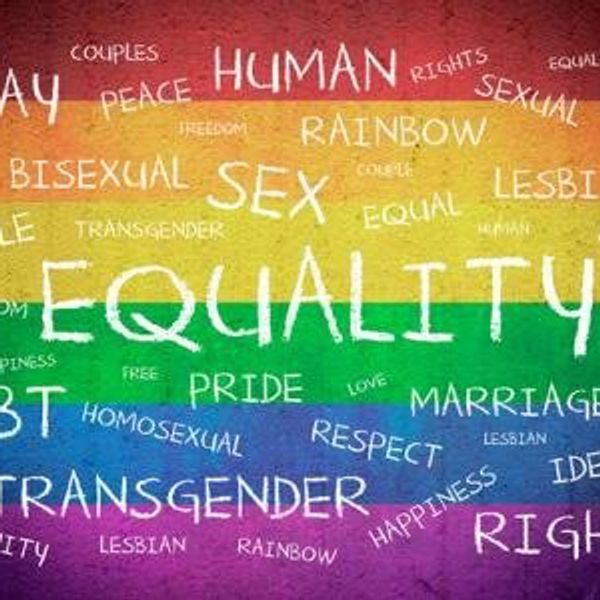Imagine feeling uncomfortable participating in class. Imagine feeling judged for wanting to be open and accepted. Imagine having peers make assumptions based on a single personal preference. Imagine being excited to leave a conservative religious household only to be met with that same judgment at college. Imagine wanting a good education but not feeling equal to other students on campus because of the school’s religious affiliation. That is the reality for many students who identify as gay, lesbian, bisexual, transgender or questioning at Boston College.
Ricardo Morales*, a sophomore at Boston College from Mexico, went to the university with hopes of being open about his sexuality and accepted by the student body. Morales grew up in a Catholic household but his family doesn’t go to church often. When he told his parents and siblings he identifies as gay, they used religion as a weapon against him. His immediate family asked him not to tell his extended family because it’s against the Catholic faith. His family members also told him not to share anything about his romantic life with them and Morales believes it’s because they equate gay relationships solely with sex. “I understand some people are uncomfortable, but it’s disappointing. Disappointment is the best word,” he says of describing the responses he’s gotten from Catholics.
During Morales’s freshman year, he openly discussed his love life but doesn’t feel as comfortable doing that in his second year at the university. “I’ve been more closed this year. People will ask me about my romantic life and it’s easier to say I don’t have one. I feel like I’ve gone back into the closet since being here,” he says of his time at Boston College.
He stopped raising his hand in theology courses. His class discussed the progressiveness of Pope Francis and some of his conservative classmates felt angry about the mixed messages the pope has given about same-sex couples and oppressed groups of people. Morales felt hopeful about the Catholic Church with the election of Pope Francis and thought it would create a higher tolerance for the LGBTQ community. He was wrong. Morales didn’t feel comfortable enough to share his opinion in class because he feared judgment from other students. His academic performance suffered because of the unwelcoming environment created by his peers.
Morales doesn’t only feel judged by religious conservatives, though. He talked about his sexuality with his close friends on campus and although they seemed open, some of them unconsciously treated him differently. He became the “sassy friend” and the “shade queen.” He wants his friends and other students to be aware that the language they use affects him, even if it isn’t explicitly a gay slur. Morales doesn’t want to be the sassy gay friend; he wants to be the regular, nice, smart friend. His sexuality is not the only thing that defines him.
Pedro Bonilla, a junior at Boston College from Los Angeles, California, feels similar to how LGBTQ students are treated on campus. He grew up in a Catholic family and his parents asked him not to tell his extended family about his love life after he came out as gay. Bonilla now attends a nondenominational church, Reality Church, in Boston that welcomes a diverse group of people. “God made everyone for a reason and purpose. I’m meant to be this way,” he says.
Bonilla attends GLBTQ Leadership Council meetings and events but thinks the club has stricter guidelines compared to other campus groups. GLC wanted to host a dance but the administration made the group call it a gala because the staff thought a dance would promote same-sex coupling at Boston College. Staff also questions the group extensively when it wants to have a speaker come give a talk on campus. Bonilla doesn’t think the Boston College administrators grill and question other clubs on campus as much. Some students think they cannot attend GLC events if they identify as straight but Bonilla says it’s important for all types of students to be allies.
“I’ve never had someone discriminate against me to my face, but some people are uncomfortable. I don’t tolerate bullying because I’m confident enough to fight back,” he says about students that do not accept him. “My personality plays a bigger role in making friends than my sexuality."
Jesuits specifically pride themselves on exceptional education, volunteer work, and freethinking. Pope Francis, the first Latin American and first Jesuit pope, was elected in 2013 and emphasizes the importance of serving marginalized and oppressed groups. Despite this social progress, the Catholic Church has not changed its stance on same-sex couples. Identifying as gay is still sinful. Boston College, a Jesuit institution, is proud of its rigorous academics and “a deep concern for all members of its community, with a recognition of the important contribution of a diverse student body,” however; diversity of sexual preference is not celebrated. Students in non-straight relationships on campus understand the Bible condemns their romantic lives, but still feel that students and staff members must respect them even if they don’t agree with their choices. Students of the LGBTQ community should not have to give up attending a school with outstanding academics in order to feel included.
Editor's Note: *This name has been changed to respect the student’s privacy.





















